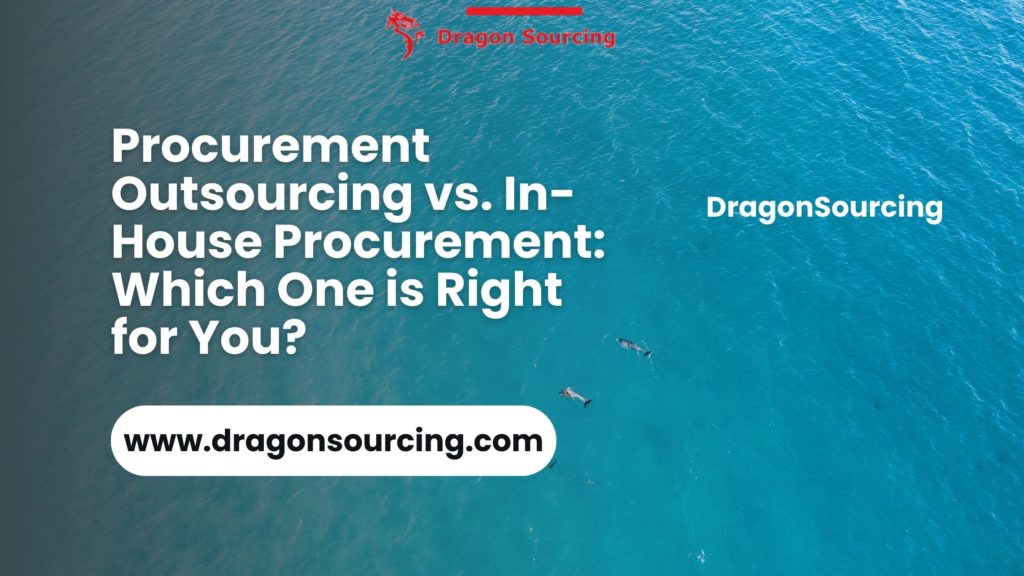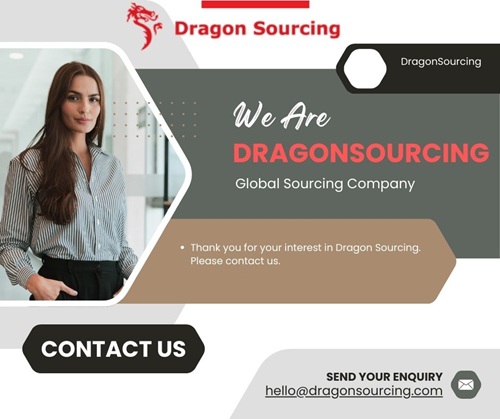
Synopsis:
-
Introduction: Businesses must choose between procurement outsourcing (hiring external specialists) or in-house procurement (managing it internally).
-
Procurement Outsourcing: Reduces costs, leverages expertise, enhances efficiency with technology, but offers less control.
-
In-House Procurement: Provides full control and direct supplier relationships but requires high operational costs and market knowledge.
-
Comparison: Covers cost efficiency, expertise, flexibility, technology, supplier management, and risk compliance.
-
Decision Factors: Budget, expertise, scalability, technology investment, and supplier relationships.
-
Conclusion: A hybrid approach can offer the best balance between cost savings and control.
Introduction
Procurement plays a crucial role in any business, directly impacting cost efficiency, supplier relationships, and overall operational success. Organizations face a fundamental decision: Should they handle procurement in-house or outsource it to a specialized service provider?
Both options come with their advantages and challenges, and the right choice depends on factors such as company size, industry, budget, and long-term goals. In this blog, we will compare procurement outsourcing vs. in-house procurement, exploring their key differences, benefits, drawbacks, and how to determine the best fit for your business.
What is Procurement Outsourcing?
Procurement outsourcing refers to the practice of delegating all or part of a company’s procurement functions to external providers. These providers specialize in sourcing, supplier management, contract negotiation, and cost optimization, ensuring that businesses get the best value for their procurement needs.
Key Functions of Procurement Outsourcing
- Strategic sourcing and supplier selection
- Contract management and negotiations
- Cost control and spend analysis
- Risk management and compliance
- Procurement process automation and digital transformation
What is In-House Procurement?
In-house procurement, on the other hand, involves managing all procurement activities internally. The company maintains a dedicated procurement team responsible for sourcing, negotiating contracts, and handling supplier relationships without external assistance.
Key Functions of In-House Procurement
- Internal control over procurement strategy
- Direct supplier relationship management
- Customized purchasing solutions based on company needs
- Real-time response to procurement challenges
Procurement Outsourcing vs. In-House Procurement: A Detailed Comparison
1. Cost Efficiency
- Procurement Outsourcing: Helps reduce operational costs by leveraging the expertise and economies of scale of external providers. It eliminates the need for maintaining a large internal procurement team, reducing overhead expenses.
- In-House Procurement: While it allows greater control, maintaining an internal procurement team can be costly due to salaries, technology investments, and administrative expenses.
2. Expertise and Specialization
- Procurement Outsourcing: Outsourcing firms have specialized knowledge, global market insights, and advanced analytics tools to optimize procurement strategies.
- In-House Procurement: Internal teams may lack access to specialized market intelligence, making it challenging to negotiate the best deals or implement industry best practices.
3. Control and Flexibility
- Procurement Outsourcing: Companies may have limited direct control over procurement decisions as outsourcing partners follow standardized processes.
- In-House Procurement: Provides full control over procurement operations, allowing customization based on specific business needs.
4. Technology and Innovation
- Procurement Outsourcing: Leading procurement service providers use AI, big data, and automation tools to enhance efficiency and decision-making.
- In-House Procurement: Businesses must invest in procurement technology, which can be expensive and require ongoing updates.
5. Supplier Relationship Management
- Procurement Outsourcing: May lead to indirect supplier relationships, as the outsourcing firm handles negotiations and communication.
- In-House Procurement: Allows businesses to build and maintain direct relationships with suppliers, which can be beneficial for long-term partnerships.
6. Risk Management and Compliance
- Procurement Outsourcing: Experts in regulatory compliance ensure businesses adhere to international and industry-specific procurement laws.
- In-House Procurement: Requires companies to stay updated on compliance regulations, which can be complex and time-consuming.
Pros and Cons of Procurement Outsourcing
Pros:
- Cost Savings – Reduces overhead and operational costs.
- Access to Global Expertise – Leverages external knowledge for better supplier negotiations.
- Scalability – Easily adapts to business expansion or changing procurement needs.
- Advanced Technology – Uses AI, automation, and analytics for better decision-making.
- Risk Management – Ensures compliance with regulatory standards.
Cons:
- Loss of Control – Less flexibility in decision-making.
- Potential Communication Gaps – Indirect supplier relationships can affect response times.
- Security Concerns – Sharing procurement data with a third party poses risks.
Pros and Cons of In-House Procurement
Pros:
- Full Control – Businesses make procurement decisions aligned with their strategy.
- Stronger Supplier Relationships – Direct communication with suppliers fosters trust.
- Customization – Tailors procurement strategies to specific company needs.
- Faster Decision-Making – No need to wait for third-party approvals.
Cons:
- Higher Operational Costs – Maintaining a procurement team is expensive.
- Limited Market Insights – Internal teams may lack external market intelligence.
- Technology Investment – Requires significant investment in procurement software and training.
- Scalability Challenges – Expanding procurement functions internally can be complex.
How to Decide: Procurement Outsourcing or In-House Procurement?
Choosing between procurement outsourcing and in-house procurement depends on various business factors. Consider the following questions:
- What is your budget for procurement operations? If cost reduction is a priority, outsourcing may be the better choice.
- Do you require specialized procurement expertise? If so, outsourcing provides access to industry experts.
- How important is control over procurement decisions? If full control is needed, in-house procurement is the way to go.
- Does your business require scalability? Outsourcing can handle increased procurement needs more efficiently.
- Are you prepared to invest in procurement technology? If not, outsourcing firms already have advanced tools in place.
- How critical are supplier relationships to your business? In-house procurement allows for stronger, more direct relationships.
Conclusion
Both procurement outsourcing and in-house procurement offer unique benefits and challenges. While outsourcing can drive cost savings and efficiency, in-house procurement provides control and deeper supplier relationships.
Businesses must assess their budget, operational needs, long-term strategy, and industry requirements before making a decision. In many cases, a hybrid model—where a company outsources some procurement functions while retaining core procurement activities in-house—can provide the best of both worlds.
By carefully evaluating your business needs, you can make an informed decision that optimizes procurement operations and contributes to overall business growth.
Need Expert Guidance? If you’re considering procurement outsourcing and need a reliable partner, contact us for a consultation on how we can streamline your procurement operations!



